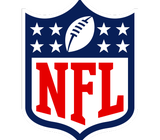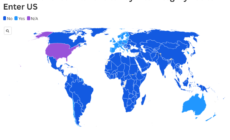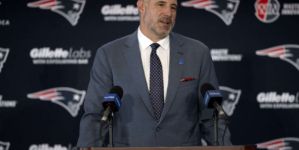-
Ex-MLB pitcher sleeping with family nanny guns down in-laws amid financial struggles - 17 mins ago
-
Alabama, Kalen DeBoer Land Huge News Regarding Elite 2026 QB - 22 mins ago
-
Fox News Entertainment Newsletter: ‘The Cosby Show’ star dead at 54, Christie Brinkley’s devastating moment - 25 mins ago
-
College Football Stock Watch: Teams Joel Klatt Is Buying, Selling Stock in for 2025 - 31 mins ago
-
L.A. Unified test scores rise above pre-pandemic levels. - 37 mins ago
-
Growing share of retirees lean heavily on Social Security, AARP says - 41 mins ago
-
Texas couple finds royal tomb, plus best gas stations for food - 55 mins ago
-
Phillies Called ‘Best Fit’ In Blockbuster Trade For Red Sox All-Star Jarren Duran - about 1 hour ago
-
Bill Cosby mourns Malcolm-Jamal Warner, his on-screen son - about 1 hour ago
-
Trey Hendrickson Posts Florida Highway Photo Amid Bengals Contract Holdout - about 1 hour ago
The Next Pope: Where Candidates Stand on Scale From Liberal to Conservative
As the Catholic Church prepares to elect a new pope following the death of Pope Francis on April 21, attention is turning to the 138 cardinals eligible to vote—and the ideological tensions that will define the selection.
With Francis having appointed 110 of the 138 electors, many expect the next pontiff to carry forward elements of his progressive legacy. Yet, sharp divisions remain over doctrine, tradition and the church’s global direction.
Why It Matters
The conclave—expected to begin within the next two weeks—comes at a time of shifting power dynamics within the Catholic Church. Christianity is in decline in Europe, while the faith is growing in Africa and Asia and regaining support in Latin America. As such, regional perspectives are influencing ideological camps, with European cardinals tending more liberal, while many from Africa and Asia lean conservative.
Who Are the Leading Candidates?
The College of Cardinals, responsible for electing the next pope, has been significantly reshaped by Pope Francis. However, Ulrich L. Lehner, professor of theology at the University of Notre Dame, cautions that this does not guarantee the selection of a progressive successor.
“Conclaves are impossible to predict,” he told Newsweek. “The challenges facing the Church are serious, and the cardinals understand the need to choose someone who is diplomatically skilled, theologically grounded, and fluent in multiple languages.”
Lehner added that Francis’ style of leadership—often marked by unilateral decisions and limited consultation with the college—has made it difficult for cardinals to build relationships with one another. “They were rarely convened during his pontificate,” he said, “which makes it harder to assess each voter’s suitability for the highest office.”
As speculation grows, several high-ranking cardinals have emerged as leading contenders. According to Vatican analysts and bookmakers, the following candidates currently have the strongest odds. Here’s a closer look at each of them, along with their ideological views.
Liberal Candidates
Cardinal Luis Antonio Tagle (Soft Liberal)
From the Philippines, Tagle is aligned with Pope Francis’ reformist and inclusive vision. He supports a compassionate approach to marginalized groups and has been dubbed the “Asian Francis.” He is currently the betting favorite at 3:1 odds.
Cardinal Pietro Parolin (Liberal)
The Vatican’s secretary of state, Parolin is seen as a diplomatic liberal who played a key role in Francis’ Vatican. Despite some conservative stances, he is generally classified as liberal due to his institutional alignment and global outlook. His odds to become the next pope range from 4/1 to 6/1.
Cardinal Jean-Claude Hollerich (Liberal)
From Luxembourg, Hollerich supports ordaining women, relaxing celibacy rules and blessing same-sex unions, making him one of the most progressive figures among the electors. His odds to become the next pope are currently around 12/1.
Conservative Candidates
Cardinal Peter Erdő (Soft Conservative)
A Hungarian canon law scholar, Erdő advocates for a return to traditional theology and stricter liturgical norms, like support for the old Latin Mass. He is considered a leading conservative candidate, with betting odds at 6/1.
Cardinal Pierbattista Pizzaballa (Soft Conservative)
The Latin patriarch of Jerusalem, Pizzaballa has gained prominence due to his role amid the Israel-Gaza conflict. He is part of the conservative wing and seen as a younger potential pope. His current odds stand at 20/1.
Cardinal Robert Sarah (Conservative)
From Guinea, Sarah has a long-standing reputation as an archconservative. He defends clerical celibacy and has been critical of the Catholic Church’s engagement with modern social movements. He is considered a conservative favorite, with odds around 12/1.
A Divided Electorate
The ideological breakdown among papabili—the cardinals most frequently mentioned as potential successors—highlights the internal divisions shaped by Pope Francis’ tenure. According to The Times, the College of Cardinals can be categorized into five ideological camps: liberals, soft liberals, moderates, soft conservatives and conservatives.
The largest bloc consists of liberal and soft liberal cardinals, but no single faction holds a clear majority—indicating that behind-the-scenes consensus-building will be essential in this conclave.
“Overall, I think the fact that, by my count, over 100 of the eligible papal electors were appointed by Francis could have a profound effect on the outcome,” Cristina Traina, professor at Fordham University, told Newsweek. “That is, we may not see a pendulum swing away from Francis’ priorities.”
Francis’ decentralized leadership and emphasis on inclusion have transformed the Roman Curia, elevating lay professionals to top Vatican positions. However, these reforms have also sparked discontent among more traditionalist factions within the church.
“Since his election, Francis has consistently worked to bring greater transparency and professionalism to the Curia and various Vatican offices,” said Michele Dillon, Ph.D., dean of the College of Liberal Arts at the University of New Hampshire. “Undoubtedly, these organizational reforms have not pleased everyone—and some of that personal discontent may influence how certain cardinals approach the selection of the next pope.”
What Happens Next
The Vatican outlined plans for Pope Francis’ body on Monday, announcing that he will be moved to St. Peter’s Basilica as early as Wednesday to allow worshippers to pay their respects over a three-day period. The funeral is expected to take place in St. Peter’s Square, weather permitting, with a two-hour service conducted primarily in Latin. It will largely follow the format of a traditional Catholic funeral, with additional papal rites.
Source link






























